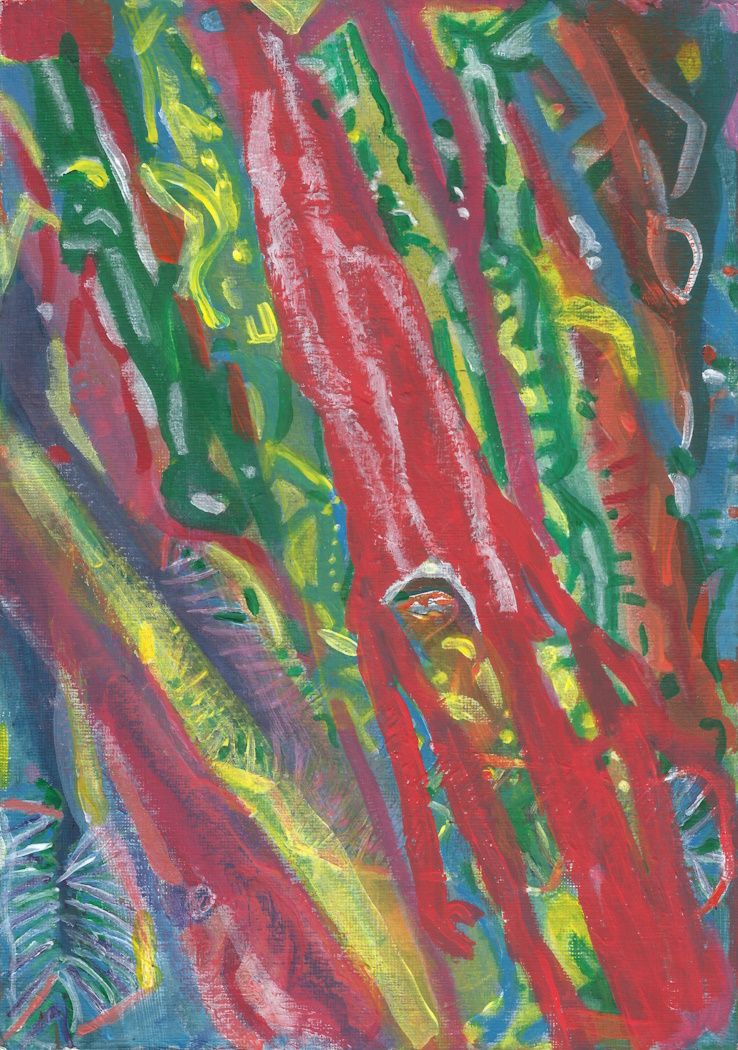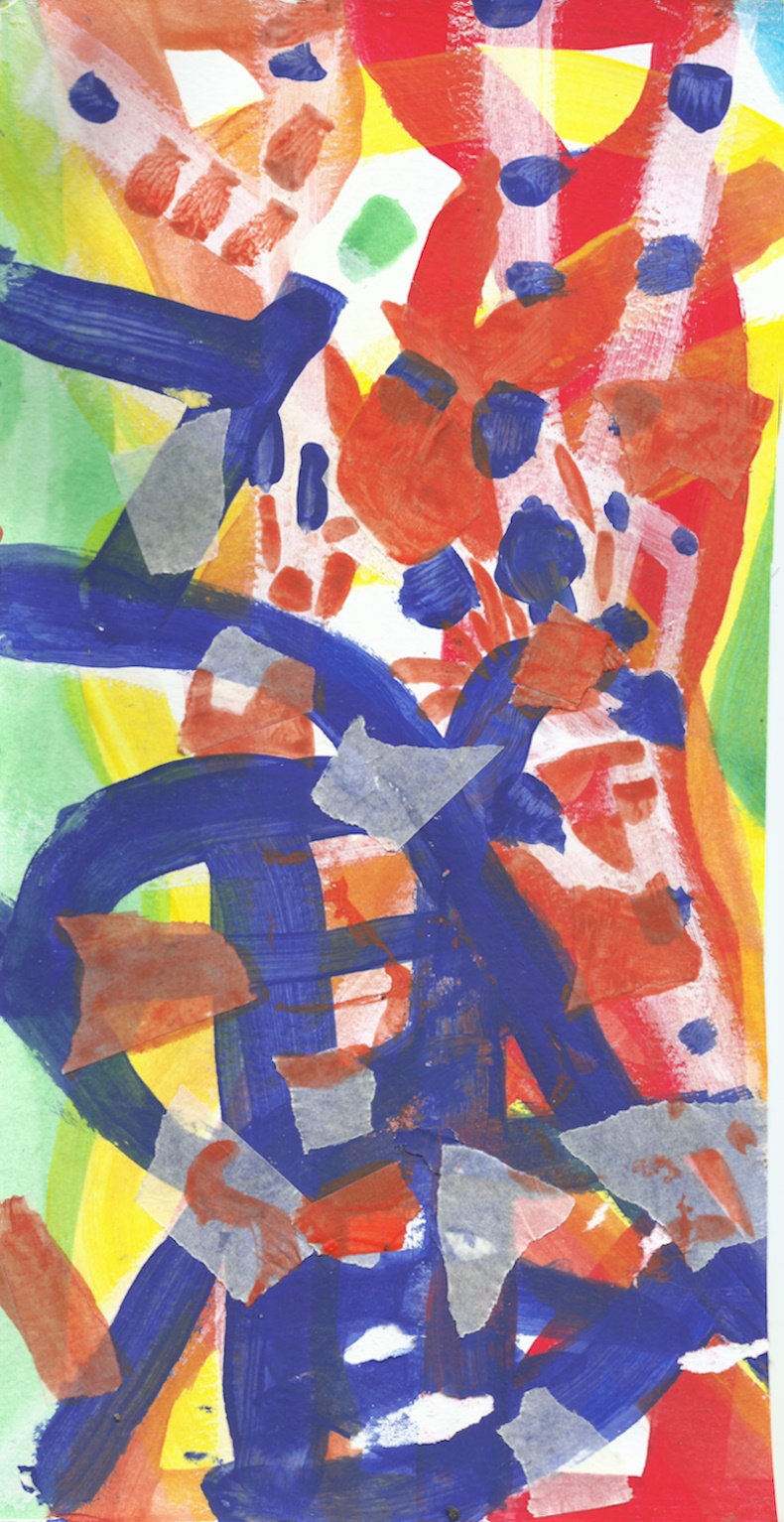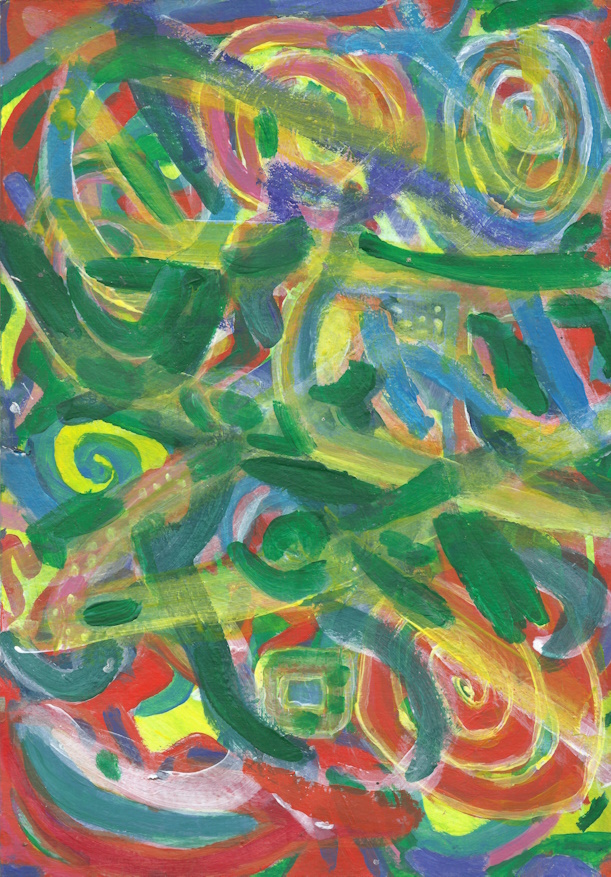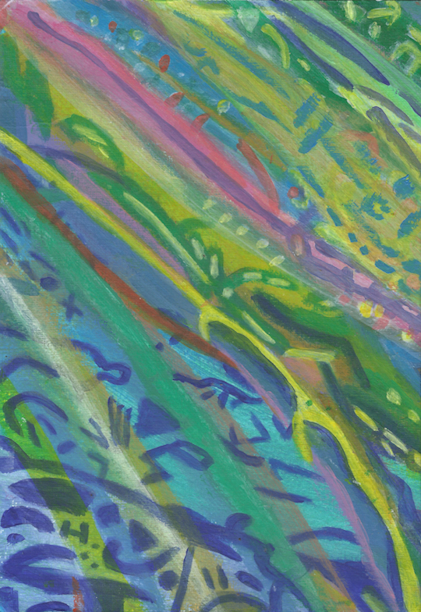In the Noble eightfold path, the sixth factor is Right Effort. It has
five aspects to it.
These are the four right exertions, or four right efforts, and the
tuning of energy so that it is neither too lax, nor too tight. One learns to
tune the energy of effort so that one doesn't become too lazy in their
practise, whilst also avoiding the other extreme of over-exertion,
overdoing it, and straining the mind. Both extremes are to be avoided. A bit
like tuning a guitar string, so that it sounds just right. You want to tune
effort so that you don't stagnate in your practise, but you also don't burn out
either. If you try too hard you will end up feeling aversion towards meditation
practise and dhamma, and if you don't make effort, you will not develop or make
progress.
The four right efforts are:
1. Preventing unwholesome states of mind arising
This involves talking to oneself in the morning when you get up to start the
day. You prep the mind and tell yourself: 'I will avoid the folly of the
fault-finding mind; and I will avoid the folly of the greedy/lustful
mind."
As one goes about the day one aspires to hold on to the sign of peace
and keep one's consciousness secluded from anger/hate and lust/greed. This is
done by avoiding unwise attention to the fault (both in oneself and in others);
and by avoiding unwise attention to the beautiful.
One cannot avoid sensing things in the world, we can't walk around with
our eyes closed etc, we will be bombarded by sights, sounds, smells, tastes,
touches, words, and ideas. It isn't about shutting off the senses, it is about
practising wise attention to them, so they don't lead us to greed, hate and
delusion. One senses what is sensed without adding any more to it.
I find the teaching the Buddha gave to Bahiya helpful here:
'In the seen, there is only the seen.
In the heard, there is only the heard.
In the sensed, there is only the sensed.
In the cognized, there is only the cognized.
This Bahiya is how you should train yourself.
When for you Bahiya there is:
In the seen, only the seen.
In the heard, only the heard.
In the sensed, only the sensed.
In the cognized, only the cognized.
Then there is no you in connection to that.
And when there is no you in connection to that.
There is no you there.
And when there is no you there.
You are neither here nor there, nor in between the two.
This, just this, is the end of suffering.'
2. Removal of unwholesome states of mind should they arise
The second right effort is used when the first right effort: prevention, fails.
This is about removing (letting go of, abandoning) greed, aversion, and
delusion, (aka the five hindrances: longing, aversion, sloth,
restlessness/worry, and doubt) should they arise in the mind. The Buddha
suggests five strategies for doing this.
The first is dismissal and replacement, i.e.
replacing the unwholesome state of mind with its opposite. Such as replacing
anger with calmness or loving-kindness (metta). Like a carpenter knocking out a
peg by replacing it with another.
If that fails then one uses a healthy sense
of shame, reflecting on how for example, anger is a great stain on the
personality, how it is ignoble and leads to painful states of mind for oneself
and others. This sense of shame can help one let go of it. The Buddha likens it
to a person about to go out to meet some people they respect and admire. They
look at themselves in a mirror and see the corpse of a snake hanging round
their neck, and feeling repulsed by it they immediately remove it, as that is
not how one wants to appear in front of people one respects and admires.
If that fails then one is to ignore the unwholesome
state of mind, not pay attention to it, as if turning away from a sight one
does not wish to see. A Nun described it during a retreat I attended, as being like
walking down the street and seeing some dogshit on the pavement, one is careful
not to step into it. One can also use distraction as well, find something that
distracts the mind from the unwholesome feelings, till they cease.
If that fails one turns to face it, looks directly
at it. And then brings oneself of it gradually in stages. The Buddha uses a
cartoon metaphor of a man running, who says to himself, why am I running when I
could be walking? Then he says to himself, why am I walking when I could be
standing? Then why am I standing when I could be sitting? Why am I sitting when
I could be lying down? At each stage one reviews if it is working, noticing if
the unwholesome state of mind is weakening, if it is that means you are going
in the right direction and should keep doing what you are doing, eventually it
will cease.
If that strategy fails then the Buddha suggests as a last resort one suppresses
the unwholesome state of mind. He uses the metaphor of a strong man pinning
down a weaker man. He makes it clear one must not allow that unwholesome state
to express itself as it can lead to suffering for both oneself and others.
There are other strategies for abandoning unwholesome states of mind.
One must experiment and find what is helpful for you. Investigate in your own
life, see what works. We are all unique and conditioned differently. The way I
do things, may not necessarily work for everyone else. We must know ourselves
and find our own way. It doesn't matter what strategy you use. The main thing
is to be mindful, investigate and make effort. Find ways of bringing yourself
out of destructive states of mind before they cause harm to oneself and others,
before they cause suffering, that's the main reason. It is not a commandment;
it isn't about judging anyone or being authoritarian. What other people do is
up to them, it's their business. The reason one abandons greed, hate, and
delusion is because they cause us suffering, and the noble eightfold path is
about putting an end to suffering.
3. Generating wholesome states of mind
Wholesome states of mind are the seven factors of enlightenment: 1.
mindfulness, 2. investigation, 3.effort (energy), 4.joy, 5. calmness, 6. samadhi
(aka collectedness, concentration, composure, unification of mind, stillness),
and 7. equanimity (Balance).
The Brahma viharas are also wholesome states of mind, these are:
loving-kindness/friendliness/goodwill (metta), compassion (karuna), joy in the
happiness of others (mudita), and equanimity (upekkha). In fact, practising the
brahma viharas fulfils much of the eightfold path and can take you to the
doorstep of nibbana. The brahma viharas fulfils, right intention, right speech,
right action, right livelihood, right effort, right mindfulness, and right
samadhi (concentration). When one has perfected the brahma viharas, one then
needs to look again at right view and penetrate and understand the four noble
truths,
1. Knowledge of suffering (which is to be understood)
2. Knowledge of the cause of suffering (which is to be abandoned)
3. Knowledge of the end of suffering (which is to be realised)
4. Knowledge of the way that leads to the end of suffering (which is to be
developed)
One can unlock the door to nibbana with a key that has three teeth which fit
the lock. The three teeth that fit the lock are the understanding of: anicca (impermanence,
change), dukkha (stress, sorrow, unsatisfactoriness, grief, suffering), and
anatta (not-self). One investigates conditioned phenomena, investigates the
five aggregates (body, feelings, perceptions, thoughts, sense-consciousness),
and observes the three characteristics in them. And when with wisdom and
insight, with direct knowing and experience in one's own life, (not just an
intellectual understanding). The mind stops clinging to conditioned phenomena,
and what remains then is the deathless, the unconditioned, nibbana. Which is an
experience, it is not annihilation. It goes beyond concepts of existence and
non-existence. Beyond all views. I think in the Mahayana tradition it is known
as Buddha nature, or the original mind. And from there without the ego getting
in the way and attaching conditions to things, no longer caught in the
self-centred dream, unlimited, immeasurable, boundless compassion for all
beings can flow.
4. Sustaining wholesome states of mind
The fourth right effort is about keeping the wholesome states of mind going
continuously, throughout the day. On and off the cushion.
In the words of the Buddha:
'One generates the desire for the prevention of unwholesome states of mind.
By making effort, rousing energy, exerting one's mind, and persevering.
One generates the desire for the abandonment of unwholesome states of mind. By
making effort, rousing energy, exerting one's mind, and persevering.
One generates the desire for the arising of wholesome states of mind. By making
effort, rousing energy, exerting one's mind, and persevering.
One generates the desire for the continuance, non-disappearance, strengthening,
increase, and full development of wholesome states of mind. By making effort,
rousing energy, exerting one's mind and persevering. '
Hope this helps others out there. I have found the teaching on right effort to
be very helpful and empowering for me. If one keeps practising, the effort
builds up a momentum and energy of its own and it then gets easier, becomes
more automatic. It is just building habits really.
I still have much work to do, but I can testify that this works.
It is powerful stuff, and the Buddha's teachings on right effort are not often
taught in the West, which is a shame, because they are so important. Right
effort is the third factor in the seven factors of enlightenment, aka energy,
and the Buddha mentions this factor more times than any other factor, even more
so than mindfulness. It is very important, and one won't make much progress
without making effort.
This isn't me teaching or anything. I am not a teacher, and I am not telling
others what to do with their lives. It is just my perspective and what I
practise with in my own life that I have found helpful. It may or may not be
helpful to others. And I honestly won't take it personally if it isn't anyone else’s
cup of tea.
I find it is useful for keeping the precepts, as well as developing the
other aspects of the path, or any other skill in life you want to learn
actually.
Take care.
May we all be safe, well, peaceful and happy.
...






